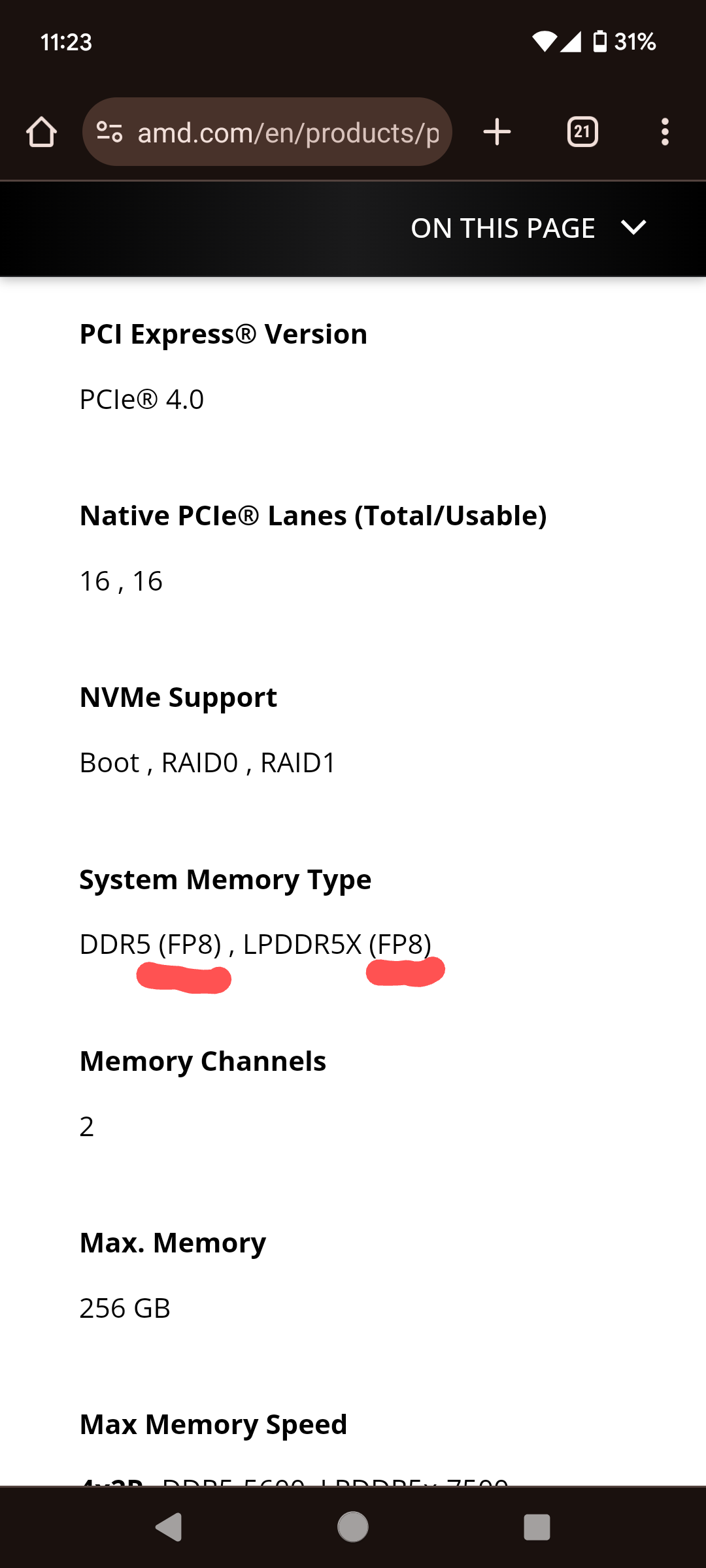I’m curious about when we might see the next AMD refresh for the Framework Laptop 13. The current top-spec option is the Ryzen 7 7840U, which was introduced in early 2023 and started shipping in Q3 2023. Given AMD’s latest offerings and Framework’s history of timely updates, soon we might expect to see a new mainboard featuring AMD’s newer CPUs, like those from the Ryzen 8040 series or the upcoming Ryzen 9000 series.
- Ryzen 7 7840U:
- Architecture: Zen 4
- Cores/Threads: 8/16
- Base/Boost Clock: 3.3 GHz / 5.1 GHz
- TDP: 15-28W
- Integrated GPU: Radeon 780M
Potential New CPUs:
- Ryzen 8040 Series: Higher base and boost clocks, improved power efficiency, and enhanced RDNA 2 or RDNA 3 integrated graphics.
- Ryzen 9000 Series: Zen 5 architecture, up to 16 cores and 32 threads, improved AI processing capabilities, and better power efficiency.
Framework has consistently updated its laptops with the latest Intel and AMD CPUs, so it seems we might be due for a refresh soon.
What are your expectations for the next AMD mainboard refresh?
My guess would be that Framework releases a model/mainboard featuring Ryzen AI 300 (Zen 5). It’ll probably be a while as they are in the process of releasing Core Ultra Series 1 right now, and these CPUs have been out since mid-December 2023.
So I wouldn’t expect a new AMD model to be released before 2025. Maybe it’ll be announced at the end of this year though.
The Ryzen AI 300 apparently only uses soldered RAM, so probably not.
It’s definitely supported (although many manufacturers will use LPDDR5 for faster speeds at the cost of upgradability/repairability), see https://www.amd.com/en/products/processors/laptop/ryzen/300-series/amd-ryzen-ai-9-365.html

Isn’t FP8 a type of socket? I’m not totally up to date on this stuff but that’s my understanding.
Also, I’m pretty confident that LPDDR5 isn’t faster than DDR5. The numbers aren’t comparable and you’d need to halve the LPDDR5 numbers to get the DDR5 equivalent. Otherwise they’d put LPDDR5 in desktops.
DDR5 is supported up to 5600 MT/s (that’s as high as JEDEC spec currently goes for DDR5 SODIMMs afaik) while I’ve seen Ryzen AI notebooks using LPDDR5X with 7500 MT/s. Latency should also be lower on LPDDR5X as it can be physically closer to the CPU.
There are some performance comparisons on older Ryzen CPUs/APUs showing that the iGPU benefits a lot from faster LPDDR compared to DDR.
You’re right, I wasn’t up to date on LPDDR5 vs LPDDR5X as far as speed goes.
But it still looks like Ryzen AI 300 won’t support SODIMM at all.
We have yet to see what other AI 300 SKUs support when they release then I guess, and I usually take whatever LTT says with a big grain of salt. That being said, Linus might have some insider information because of his Framework investment. Framework will very likely know by now what their next mainboard supports in terms of memory.
It’s a weird timeline. CAMM2 modules are basically right around the corner, and Intel’s Core Ultra 2 only supports on-chip memory, and now AI 300 seemingly only supports soldered memory? This is all a bit weird to me.
I’d be fine transitioning to CAMM2 modules and making SODIMM obsolete, but a Framework mainboard with soldered on memory wouldn’t sit right with me.
I’d love to see a newer AMD version, especially if it means the older model gets cheaper. I’ve been having battery issues with my current laptop (battery degradation (battery health at around 60% or less) + charger seems to not charge laptop at full power, meaning it’s slower when plugged in lol). So, my next machine could easily be a Framework.
Given the prospects of strix point and halo, I think a refresh would bode well particularly given the issues some people have with module power use.
That said, I think strix point has four fewer pcie lanes than its predecessor, I’m wondering if that would prevent a SP version of the Framework 16.
My primary wish for all framework mainboards right now is LPCAMM2.
On the other hand, I believe lunar lake will only offer on-package memory.



